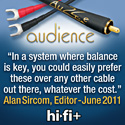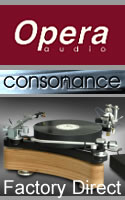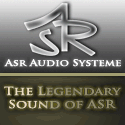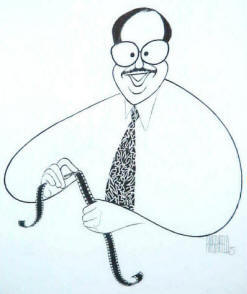|
|
You are reading the older HTML site
Positive Feedback
ISSUE
58
zesto audio Andros PS1 Phono Stage as reviewed by Robert H. Levi
I was just listening to the new Impex LP release of Time Further Out with the Dave Brubeck Quartet from Columbia, 1961, number 900/3000 produced. The sense of “you are there” aliveness, bathed in silence when needed, indicated to me that this was indeed a very exciting looking and sounding phono stage from Zesto Audio. This cutting-edge tube/transformer design came from George Counnas, a kindly gentleman I first met at a Los Angeles and Orange County Audio Society event last year, together with his delightful wife, Carolyn. He told me he was going to build a phono stage, and that he was previously a Decca tube equipment designer and engineer. I said I had to review this! Hold on to your LPs folks: the Zesto Audio Andros PS1 is a $6000+ phono stage in performance and looks—for only $3900! There are 5 dealers so far, with more coming on line soon. If I had installed four tubes on my E.A.R. 324 phono stage, this is about what the Andros would imitate. Except that the Andros would cost half as much! The Andros is very, very close sonically to the Manley Tube Phono for $10k, and at less than half the cost, is almost as flexible. It's all about taste. George obviously loves a big soundstage. As a result, both right-to-left and front-to-back soundstaging is as good as you can get at any price. He craves great imaging. The Andros has that in spades! He also loves a palpable and realistic sound. The Andros never failed to be both precise and fully fleshed out from start to finish. The Setting Before I go any further, let me describe the test system front end. I utilized both the Grado Statement 1 and the Koetsu Rosewood Signature, both medium-low output carts. Single-ended phono cables were the superb Jorma Design Origo interconnect for the Grado, and the new Kimber Select Silver 1036 for the Koetsu. Arms were matched Helius Omega Tonearms on the E.A.R. Disc Master Magnetic Drive Turntable. Interconnects from the phono stages included both the top Kubala-Sosna Elation! and Emotion, single-ended and balanced. Power cables were the powerful K-S Elation! and Emotion. As a reviewer, I can overlook the fact that my cables cost more than the phono stage. I rarely review gear this inexpensive, and I detest cable colorations, too. Lastly, both inputs on the phono stages received my Bybee Limited Edition SE Phono Bullets to eliminate 1/f distortion in the carts. Since I used them consistently, the resulting performance was not skewed, other than to be more revealing of plusses and minuses in my reference and review gear. You will hear more about these devices on PFO! More Magic Bullets The Andros's design and functionality is quite unique to me. I have never seen a phono stage with separate ground switches for floating either the left, right, or both analog inputs, to completely eliminate noise. Nothing drives you crazier than phono hum, and these easy-to-reach, clearly-marked adjustments are terrific. They result in the quietest tube phono stage yet at this price point. Hell, the tubed Andros is as quiet as my solid state reference! You should be able to use the Andros in situations where other phono stages will hum like Glenn Gould. The Andros is a mature one-box design with internal shielding of pure steel. Done right, you really only need one box. It weighs in at a hefty 28 pounds.
The Andros is perfectly voiced to the four JJ gold pin low noise high output 12AX7 tubes, and the unit is burned in 50 hours before shipping! Even the transformers are selected by ear, as George lovingly tweaks everything. Carolyn, an artist, did the design work, resulting in a visual knock-out piece that is 21st Century gorgeous! Special Isonode vibration dampening feet are included, along with a detailed and helpful manual describing the use of all the many external controls. Finally, the many adjustments available to the user are well chosen in favor (or, for George, “in favour”) of the MC cartridge. MM is set at 47K OHMS and 100 pf. There is no mono switch or phase switch to keep the cost low and help max out the stunning stereo sound.
By the way, you can simultaneously hook up two tonearms to the Andros as long as one sports a MM and the other MC. Just be sure to mute your preamp when switching. The clear bold lettering by the various controls is easy to read. I really like this, as I'm not getting any younger. The Performance There is no tube phono stage that performs as well as the Andros overall, unless you want to double the cost. There is no solid state stage under $6000, to my knowledge, that is competitive. The Manley, E.A.R. 88PB and 324 all offer about 10-15% more definition [balanced mode on the 324], a bit more flexibility, and cost a ton more. I am reaching mightily to find something to criticize about the Andros. I wish it had balanced outputs, but it does have balanced inputs and I don't have that on my 324. The Andros is a wolf in sheep's clothing! The fleshiness of the musical timbres, the superb focus, the airy highs, the solid, well-defined bass, are all one needs to enjoy LPs to maximum effect. And the superb quiet! Wow! Black backgrounds are key to phono. You just do not want to add more noise to LP playback! The Andros provides trend-setting silence the equal of any phono stage I have ever reviewed at any cost. It was ultra-quiet even without the ground wires connected from the tonearms! Vocals are sublimely focused and precisely rendered with proper weight. I listened to both LPs in Stacy Kent, The Boy Next Door, Candid CJS9993 from PurePleasure Records from England. This analog-recorded LP edition is fabulous on the Andros. Her voice floats dead center and she is surrounded by top jazz players on sax, guitar, piano, etc. This is a superb album and a reference quality production available from Eastwind Import. The sense of aliveness on both the Grado and Koetsu is spot on. The Andros nails it. I hear a touch of crispness I don't hear with my reference, and I'm sure it's the JJ tubes. It is not offensive and really adds a bit to the solidity of the imaging. It is very minor and, I think, tunable with tubes or cables. There is a small shift in emphasis, which seems to enhance the extreme highs and lows of the Andros. This results in a bit of added sparkle and bass pacing. This, again, I attribute to the tube choice. The Andros did remain unfailingly musical no matter how I treated (or mistreated) it. It is unfair to drop a new piece of gear at this price point into a system where the interconnects cost more per meter than the Andros. But I must emphasize how splendidly the Andros served the system. Its overall performance was startlingly realistic. I am delighted with it and could live with it even in a cost-no-object system quite easily. I did a bit of tube rolling as I have a big stash of Mullard 12AX7s handy. With a matched pair of the British tubes in the V1&V2 positions I warmed and relaxed the sound maybe a bit too much. Try changing just one tube with a Mullard or GE. Tube rolling is easy and will give you immense pleasure with the Andros. You should be able to tweak the sound to your taste by changing only one or two of the tubes. The Andros is designed for very easy tube rolling.
On the other hand, the Andros is voiced to be right as rain as built by the designer, so you may very well find it spot on in your system just as delivered. Well done George! Note: Your cable choice is key with the Andros. A super clean and neutral cable is needed, and it must be superb in single ended mode, too. Don't skimp on interconnects just because it is not an ultra-expensive piece. The power cord is not as critical with the Andros. A good moderately-priced audiophile cord should be fine. In a nutshell, the Andros is like finding the Mona Lisa at a yard sale. It is the best bargain in a high-end phono stage I have discovered since I have been reviewing. Buy it, max out the ancillaries, and move on! Summary As a brand-new company whose first product is a made-in-America phono stage, Zesto has introduced a break-out product and brought to market a winner! Their Andros tube phono stage sports tons of flexibility with bold musicality at an unheard of price point for this level of performance. I am shocked by what they have managed to include for the audiophile under $4000! Plus, the Andros is a world beater in quietude, a wonderful attribute for a phono section. I wish more designers paid attention to this when they design phono stages, particularly tube designers. I think that you will love the sense of reality the Andros delivers; in addition, the flexibility of its controls, all placed externally for a change, are similar to units costing $10,000. Soundstaging is extraordinary, too. The Andros both over-delivers and under-prices the competition. If you need a phono stage, I wouldn't wait for the price to go up on this beauty. It begs the question, why spend more than the cost of the Zesto Andros PS1? The Andros receives my highest recommendation and top-choice rating for a phono stage anywhere near this price! Robert H. Levi
Andros PS1
Zesto Audio
|










